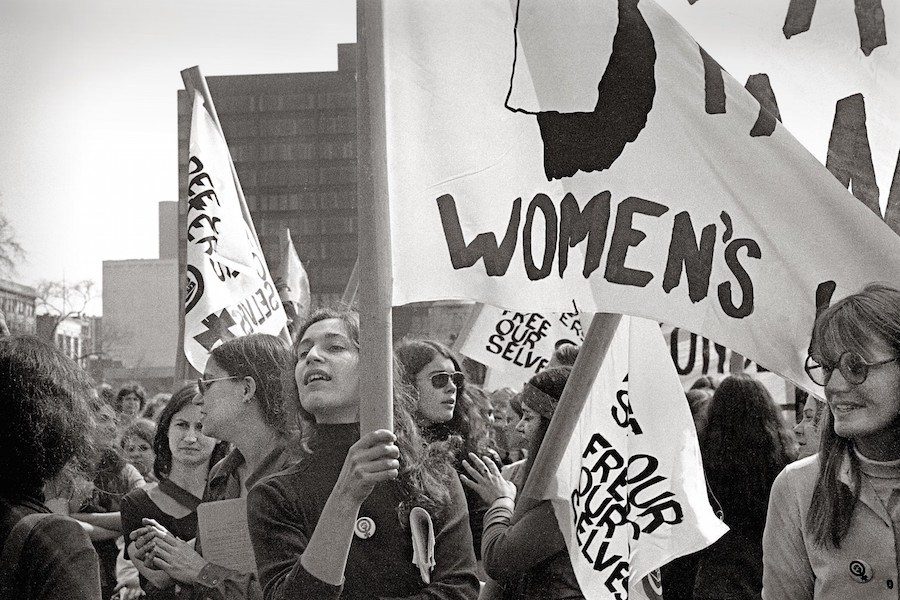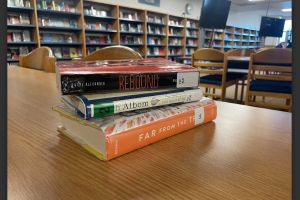Woman of the Month: Friedan fights for women of then and NOW
https://i0.wp.com/yourdream.liveyourdream.org/wp-content/uploads/2017/04/photo_by_virginia-blaisdell_woman-e1417644009452.jpg?fit=900%2C600&ssl=1
Friedan inspired a wave of feminism and led many marches, including the Women’s Strike for Equality.
October 2, 2019
Betty Friedan was different from many of her fellow feminists in a way that was alienating. Similar to other activists such as contemporary, journalist Gloria Steinem, Friedan believed that tradition and female complacency were the culprits for society’s view of women as inferior to men.
However, Friedan considered men, along with women, as victims of this misconception, cutting against the grain of other feminist thinkers of her day. With numerous articles written by women, detailing how to be the perfect mother and wife, it was no wonder the men in their lives believed women were content with lives solely based on their families.
Graduating summa cum laude in 1942 with a degree in psychology from Smith College, Betty Friedan joined the world of journalism, covering the labor movement for a news agency in Greenwich Village. However, when the veterans returned from the war, Friedan lost her job. Following the birth of her first child, Friedan began working for another newspaper. When she became pregnant again, Friedan was terminated from that job as well. Without the concept of sex discrimination, Friedan was informed that it was her fault she lost her job because she had gotten pregnant.
When Friedan returned to Smith for a reunion in 1957, she was appalled by the lack of interest in any careers following graduation, within the student body. Inspired to uncover the reasoning behind this decrease in interest, Friedan spent several years researching, finally concluding that due to their definition of women only in conjunction with their husbands and children, women’s magazines were the cause.
In 1963, Friedan published her findings through The Feminine Mystique, a book in which Friedan conveyed the discontentment felt by suburban housewives, inciting the feminist movement. With Friedan’s instigation of the feminist movement, women assembled to achieve the revolutionary concept of equal rights for women.
Friedan continued to propel the feminist movement forward. In 1966, Friedan and fellow feminist, Kathryn Clarenbach, co-founded the National Organization for Women (NOW). Friedan stated that NOW’s mission statement was “Women want feminism to take the actions needed to bring women into the mainstream of American society, now; full equality for women, in fully equal partnership with men.” Under Friedan’s presidency from 1966-1970, NOW launched the feminist movement to nationwide activism.
Friedan’s efforts did not end with NOW. Friedan’s brainchild, the Women’s Strike for Equality, took place on August 26, 1970, the fiftieth anniversary of the ratification of the Nineteenth Amendment. This march for Women’s Rights was the largest demonstration that had ever occurred in the United States. As thousands of women swarmed the streets to prove how necessary women are for labor, they had three demands: to legalize abortions, to institute 24-hour childcare centers, and to be provided with equal opportunities in employment and education. Despite the portrayal of the women as hysterical by the media, simply covering the march at all meant a step forward for the feminist movement.
Betty Friedan was a revolutionary. The movement she inspired opened numerous doors for women to speak up and advance their lives. The impact Friedan made and continues to make on my life is something I did not notice until I was in high school. I took for granted my ability to have a career after college, to envision a future outside of a family. As I wrote this article, I was struck by how feminism and equality, concepts I hear every day, were revolutionary. Part of me always understood that the freedoms afforded to me now did not always exist for women. My whole life, I’ve had the women in my life remind me how lucky I am to be able to speak my mind and express myself. But to read the simple demands of the women in the Women’s March for Equality, it finally clicked. I am lucky to be able to attend school, to be seen as a person whether or not I’m married, or have children. But, appreciating those freedoms, is not what is important. What is important is that everyone, not just females, continues to push for equality and support each other along the way.








